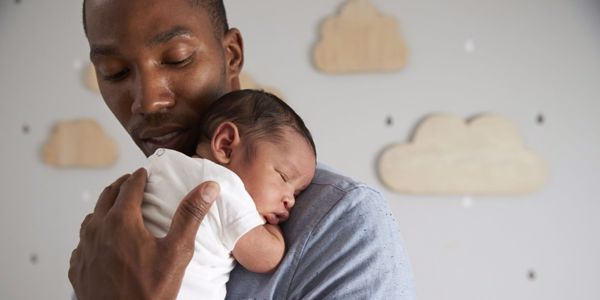Just when you think you've mastered the art of getting your little one to sleep, a phenomenon known as sleep regression can throw a curveball into your well-established routine! Here’s everything you need to know about what causes sleep regressions in babies and how to tackle a sleep regression.
Head here for 7 steps to establish a safe sleep routine for your baby.
Causes of Sleep Regressions
Brain Development
One of the primary culprits behind sleep regressions in babies is the pace of their brain development. As your baby's brain rapidly evolves, they become much more alert and sensitive to their surroundings. For more ways to harness this, here are the best sensory toys. This heightened awareness can make it challenging for them to settle down to sleep, as their minds buzz with new connections they’re making about the world around them.
During this period, make sure that you’re creating a calm and soothing bedtime routine to help ease your baby’s mind into a more restful place. Dim the lights, engage in gentle activities, and minimise stimulation to create an environment that supports their need for sleep even while the exciting world carries on around them.
Milestone Achievements
As your little one grows, they start achieving significant milestones such as rolling over, sitting up, and attempting to crawl. While these milestones are an exciting cause for celebration, they can also disrupt your baby's sleep patterns. Practicing these newfound skills in their sleep can lead to more frequent awakenings and a restless night for both you and your little one!
To navigate this phase consider incorporating additional playtime and physical activities into their daytime routine. This can help tire them out, making it more likely for them to settle down peacefully when bedtime arrives.
Separation Anxiety
Around six-months-old many babies begin to experience separation anxiety. As they become more aware of their attachment to you as their primary caregiver, the fear of being alone can lead to nighttime wake-ups. Your baby may wake seeking reassurance and comfort from you in particular.
To address separation anxiety, consider gradually introducing brief periods of separation during the day. This can help your baby become more accustomed to the idea that you'll always return, building a sense of security. But remember that this separation anxiety is a normal part of your little one’s development. Never punish them for it, and don’t spend too much time worrying that it will go on throughout childhood. Most babies will grow out of this separation anxiety in a few months time.
Changes in Sleep Associations
Sleep associations play a crucial role in how your little one falls asleep. Whether it's rocking, feeding, or being held, these conditions become ingrained in your baby's bedtime routine. However, as your baby grows, they can become more dependent on these associations, leading to disruptions when conditions change in any way.
To help manage this, gradually introduce variations in the bedtime routine. If your baby relies on rocking, try incorporating gentle music or a soft lullaby into the routine without rocking. This gradual shift allows your baby to adapt to new associations without causing abrupt disruptions and stops them from relying on one particular action indicating sleep.
Sleep regressions in babies are a natural part of their development, and they’re largely just a sign of the incredible strides they are making in cognitive, emotional, and physical growth. These phases can be challenging, but understanding the underlying factors causing the sleep regression can help you to navigate them a little easier.
If you’re struggling with loss of sleep through your sleep regression, here’s more information on sleep deprivation for new parents and how important it is to think about.





